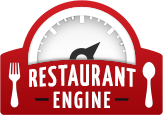The Curious Boom and Bust of Food Trucks in China
Food truck owners can learn from the instructive experiences of their Chinese counterparts during the past two weeks. China’s aggressive revival of street cart businesses at the end of May, followed by a screeching backpedal this past weekend, elucidates a harrowing tale for food truck owners who are weighing the risks of reopening in any jurisdiction.
To sketch the arc of the story, visualize the stock price of two equipment suppliers for Chinese food trucks, Wuling Motors and Yindu Kitchen. Two weeks ago, Wuling Motors was trading at 20 Hong Kong cents. By June 5, those shares had more than tripled to 63 cents. Today, just four days later, Wuling Motors has fallen 50% from its high. Shares closed for trading at 43 cents.
A similar series of events transpired with shares of Yindu Kitchen, which rocketed 62% higher last week. As of the close of trading today, Yindu Kitchen’s stock is priced at less than half of its high achieved on June 5.
Granted, Chinese businesspeople are accustomed to rapid rise and precipitous falls on any whim from their centralized government. From the shopping mall construction bubble of 2009 to the RTO bubble of 2011, very exaggerated and abbreviated business cycles are endemic to China.
China’s latest boom-and-bust story affected millions of its smallest businesses, however. (Food trucks can be launched in China for less than $500 and are the bedrock of millions of families’ income.) Premier Li Keqiang made a high-profile pitch to restart this traditional form of commerce at the National People’s Congress last month. In response, food truck owners reopened en masse.
“Overnight,” according to Premier Li, 36,000 street carts and 100,000 workers resumed business in just one Chinese city.
Emboldened with Li’s official endorsement, there was a surge of interest in food trucks across Chinese social media. Inflows surged to companies like Wuling Motors and Yindu Kitchen, as operators began purchasing needed equipment to restart food truck operations. According to Li, street vendors are “the vitality of China.” He encouraged immediate reopenings, “The stall economy and the small shop economy are important sources of employment, the fireworks of the world… We will support you.” Tencent’s media giant QQ.com published a Forbes-like list of famous businessmen who started their careers as street cart operators.
One week later, the party ended as quickly as it had begun.
The Communist Party backpedaled. President Xi Jinping squashed Premier Li’s revival, saying it opposed the country’s high-tech, superpower veneer. Weibo manually removed the hash-tag “street stall economy” from its Twitter-like platform of 516 million monthly active users.
The Beijing municipality’s official newspaper, Beijing Daily, published an unequivocal statement, “The stall economy is not suitable for Beijing.” Officials warned, “‘Street economy’ has become a hot phrase recently,” and that they have not relaxed COVID-19 rules on food trucks due to a “sudden new outbreak of pneumonia,” a euphemism for COVID-19.
Beijing state reporters continued, “The pressure of the business stalls on urban management, environmental sanitation, and transportation is obvious. Dirty streets, fake and shoddy, noise disturbing people, traveling to the streets, traffic jams, unhygienic and uncivilized once the city’s persistent illnesses come back, the previous governance results may be lost to the east, which is not conducive to establishing a good image of the capital and country.”
With that, a boom-and-bust cycle affecting millions of Chinese food truck owners played out from start to finish within a timespan of two weeks. Regardless of their jurisdiction, food truck owners can perhaps learn two things from this story. First, there is still no vaccine for coronavirus. Nor is there an antidote to fickle politics.
Photo by David Veksler on Unsplash



Leave a Reply